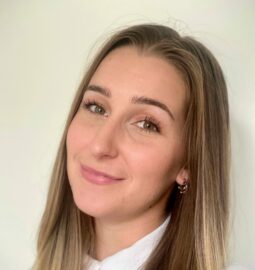
Katerina Crawford
Research Assistant
Katerina Crawford
Research Assistant
Katerina is a research assistant with RIAH. She joined the consortium in 2020 as part of the University of California, Berkeley division led by Dr. Rohini Haar. Since then, she has worked with Dr. Haar on a mixed methods project investigating attacks on health in Colombia.
Katerina is a research assistant with RIAH. She joined the consortium in 2020 as part of the University of California, Berkeley division led by Dr. Rohini Haar. Since then, she has worked with Dr. Haar on a mixed methods project investigating attacks on health in Colombia.
Katerina graduated with a BA in Molecular and Cell Biology with a concentration in Immunology and Pathogenesis- Infectious Disease and a minor in Spanish Language from UC Berkeley in 2021. In 2022, she achieved a Master of Medical Science with a Major in Global Health from the Karolinska Institutet in Stockholm, Sweden. Her Master’s thesis focused on WASH interventions and cholera in healthcare facilities in Nigeria.
Katerina’s research interests include epidemiology, infectious disease prevention and outbreak control particularly in vulnerable areas/populations, human rights and healthcare in zones of conflict.
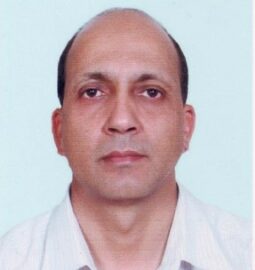
Dr Bhimsen Devkota
Dr Bhimsen Devkota
With a PhD in Public Health and Health Services Research from Aberdeen University, Scotland UK, Dr. Devkota is a professor of health education at Tribhuvan University and affiliated with Bikash Shrot Kendra, Nepal.
With a PhD in Public Health and Health Services Research from Aberdeen University, Scotland UK, Dr. Devkota is a professor of health education at Tribhuvan University and affiliated with Bikash Shrot Kendra, Nepal. He led fieldwork of the Nepal case study for the RIAH Project in 2021. He is involved in various research works in Nepal, including South Asia. He is well versed in applied and participatory action research on education, technical and vocational education, health, nutrition, health service research, A/SRH, WASH, gender and migration, behaviour change communication, disaster management, peace and conflict, humanitarian assistance, child rights, evidence-based programming on population, gender and development, good governance, and social inclusion. He has published a dozen books, over 50 peer-reviewed articles and several book chapters, in addition to his extensive teaching experience of more than 30 years at the Tribhuvan University of Nepal.
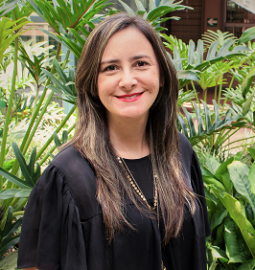
Dr Isabel C. Garcés-Palacio
Dr Isabel C. Garcés-Palacio
Dr. Garcés-Palacio is a researcher in women’s health; she is a professor in the Epidemiology group of the School of Public Health at University of Antioquia in Medellin, Colombia.
Dr. Garcés-Palacio is a researcher in women's health; she is a professor in the Epidemiology group of the School of Public Health at University of Antioquia in Medellin, Colombia. She completed undergraduate studies in Nutrition at Javeriana University in Colombia and graduate studies in Public Health at the University of Alabama at Birmingham-UAB-(MPH in 2004 and DrPH in 2009). She was a post-doctoral fellow in the Division of Preventive Medicine at UAB during 2009 and 2010. She was honored with a Fulbright scholarship in 2002 and the Outstanding Doctoral Student award in 2009 from UAB’s School of Public Health. She has extensive research experience with underserved populations in the United States and Colombia, focusing primarily on cervical cancer prevention. Her projects have focused on the effect of the social determinants of health in cervical cancer screening and follow-up of abnormalities, and psychological factors related to HPV infection and vaccination. She has also investigated about smoking prevention among women and maternal and child health in the Colombian armed conflict.

Dr Laure Humbert
Research Fellow
Dr Laure Humbert
Research Fellow
Laure joined us as a Research Fellow in January 2021. She is Lecturer in modern history at The University of Manchester. She is a historian of modern Europe, with a particular interest in the history of humanitarianism. Her next project will explore international medical cooperation during the Second World War, through an examination of close bodily encounters between medical staff and patients in various sites across the world.
Laure will join us as a Research Fellow in January 2021. She is Lecturer in modern history at The University of Manchester. She is a historian of modern Europe, with a particular interest in the history of humanitarianism. Her next project will explore international medical cooperation during the Second World War, through an examination of close bodily encounters between medical staff and patients in various sites across the world. Drawing on the methodologies associated with the global micro-history turn, her research focuses on different international medical spaces set up by the French external Resistance in the Middle East, Africa and Europe. Her research for RIAH examines how military attacks and new technologies of wounding impacted on the psychological and physical health of those attending the wounded in different medical spaces and environments, including the western desert.
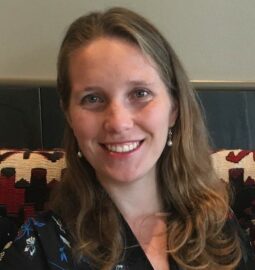
Natalya Kostandova
Natalya Kostandova
Natalya Kostandova is an epidemiologist and a PhD student at Johns Hopkins University, with previous experience in operations and evaluations in humanitarian emergencies.
Natalya Kostandova is an epidemiologist and a PhD student at Johns Hopkins University, with previous experience in operations and evaluations in humanitarian emergencies. She joined RIAH in 2019, primarily focusing on design and implementation of the CAR case study. Her focus is on identification and application of methods that have traditionally been reserved to academic research to detangling the impact of attacks on healthcare on healthcare systems and population health using observational data
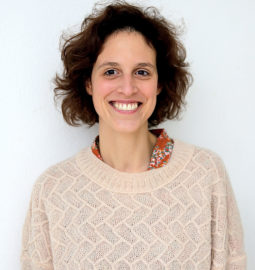
Audrey Mahieu
Research Fellow
Audrey Mahieu
Research Fellow
Audrey Mahieu was a researcher at the Geneva Centre of Humanitarian Studies. She is an experienced humanitarian aid worker who worked for different organisations (MSF, Oxfam, PUI) in post-conflict and acute emergency contexts. Since then her humanitarian field experience has kept inspiring her research work…
Until recently, her research focused on implementation research to improve quality of maternal and newborn care in low-resources settings, and methodologies to evaluate large-scale public health interventions. She is particularly interested in the sustainability of interventions.
Audrey joined RIAH in 2020. She has been working on developing research methodology to document and measure the wider and long-term impact of attacks on healthcare. She is also interested in exploring mitigation strategies to alleviate the impact of attacks on healthcare on affected populations. She is currently working on case studies in the Central African Republic and Afghanistan.

Lieutenant-General Louis Lillywhite
Lieutenant-General Louis Lillywhite
Louis Lillywhite retired as surgeon general of the UK Armed Forces in 2010. He is working with us as an advisor on the RIAH project. His 42-year career in the Army included medical appointments as a consultant occupational physician, operational deployments, and command and staff appointments in the Ministry of Defence and in various army and NATO Headquarters.
Louis Lillywhite retired as surgeon general of the UK Armed Forces in 2010. He is working with us as an advisor on the RIAH project. His 42-year career in the Army included medical appointments as a consultant occupational physician, operational deployments, and command and staff appointments in the Ministry of Defence and in various army and NATO Headquarters. Since retirement he has worked with Chatham House and has recently started a three-year research programme, in collaboration with partners in Europe and India, on transition between conflict and development, which is funded by the European Union’s Seventh Framework Programme.

Jennifer OKeeffe
Jennifer OKeeffe
Jennifer OKeeffe is a field epidemiologist and current PhD student at Johns Hopkins Bloomberg School of Public Health, where she works with the Center for Humanitarian Health.
Jennifer OKeeffe is a field epidemiologist and current PhD student at Johns Hopkins Bloomberg School of Public Health, where she works with the Center for Humanitarian Health. She has a background in outbreak and conflict emergency response, working in a range of settings in Sub-Saharan Africa and the Middle East. She joined RIAH in the summer of 2022 collaborating to investigate the impact of attacks on health care in CAR. Specifically, the project will examine the effects of attacks on the CAR health system and health service provision.

Dr Sophie Roborgh
Dr Sophie Roborgh
Sophie holds a Presidential Academic Fellowship in Medical Humanitarianism at HCRI. Her work focuses on local medical humanitarian initiatives, where she studies grassroots organisation of medical efforts and attacks on local medical staff and infrastructure. She has specifically looked at the case studies of Egypt, Syria, and Ukraine. On RIAH she is working with Dr Larissa Fast on our case study in Ukraine.
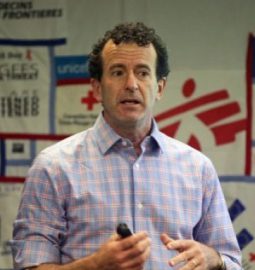
Professor Paul Spiegel
Professor Paul Spiegel
Paul is working with us on methodological development and in particular on the CAR case study. He is a physician by training and internationally recognized for his research on preventing and responding to complex humanitarian emergencies. He is a Professor at Johns Hopkins Bloomberg School of Public Health, the Director of the Center for Humanitarian Health at Johns Hopkins University, and Co-Chair of Lancet Migration.
Paul is working with us on methodological development and in particular on the CAR case study. He is a physician by training and internationally recognized for his research on preventing and responding to complex humanitarian emergencies. He is a Professor at Johns Hopkins Bloomberg School of Public Health, the Director of the Center for Humanitarian Health at Johns Hopkins University, and Co-Chair of Lancet Migration.
“I enjoy working on the RIAH project as it combines human rights, humanitarian health and epidemiology. Most importantly, I hope that it will ultimately hope in reducing attacks on health workers and facilities.”